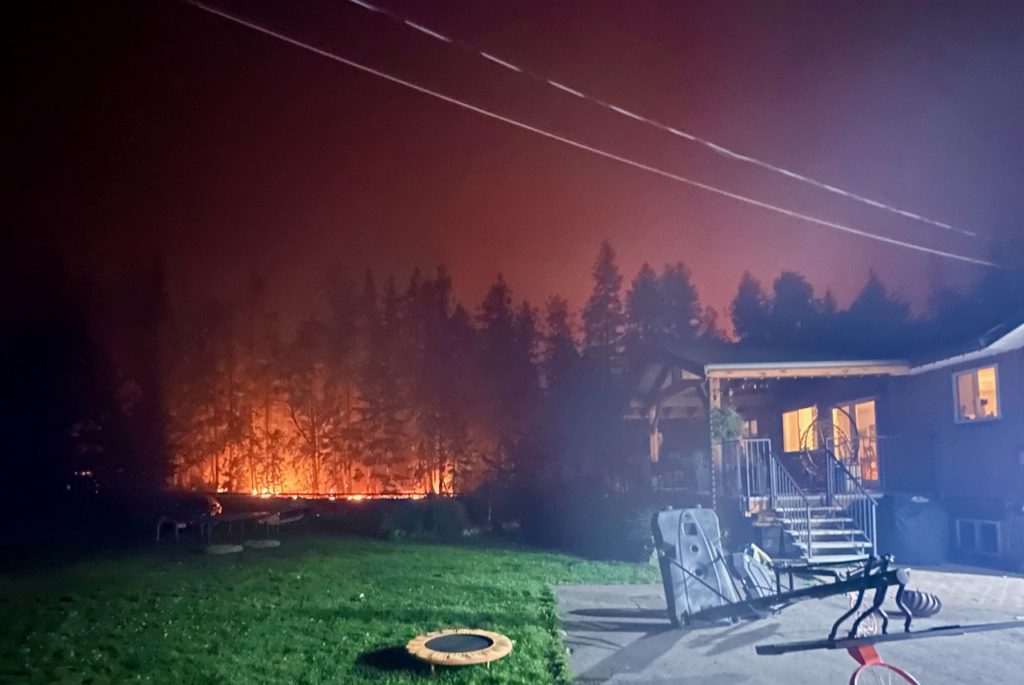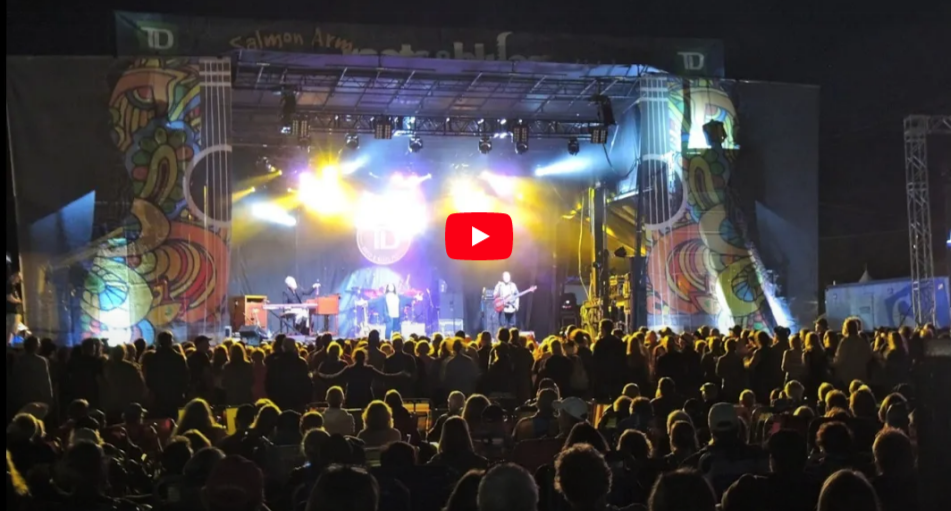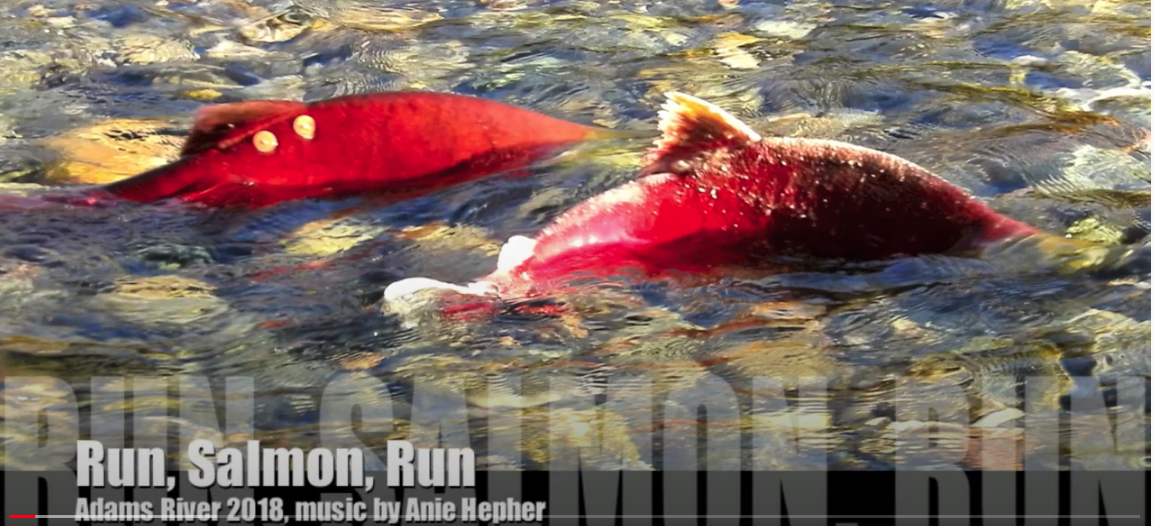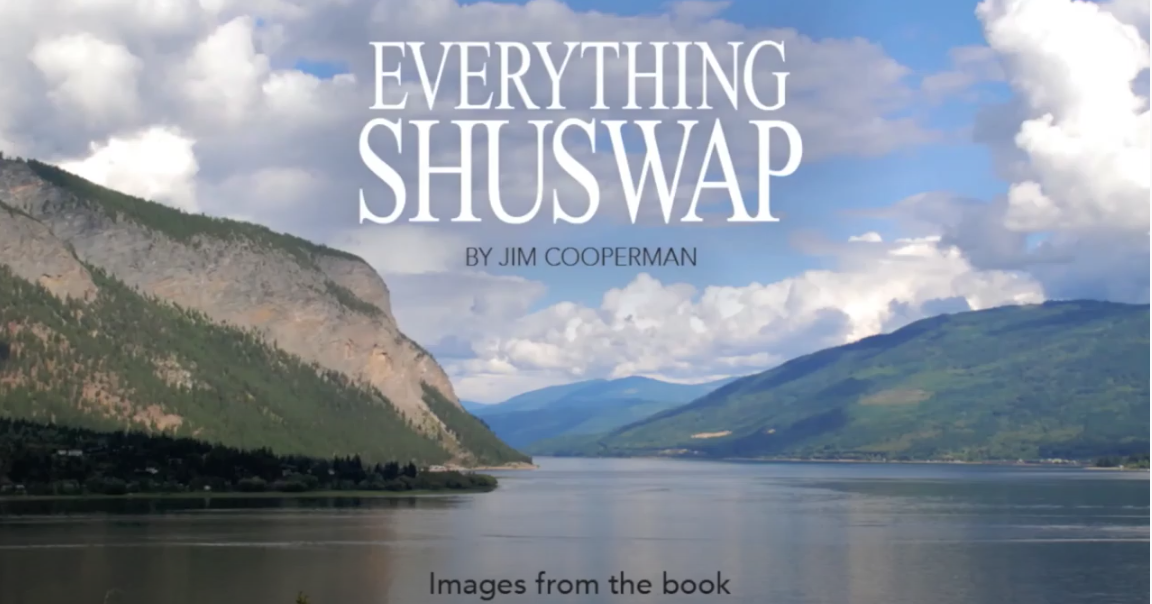
A common saying is that the true test of character is to be able to admit when a mistake is made and issue an apology. The chance that the Columbia Shuswap Regional District will ever do this is remote, given that many of the directors and staff likely still believe that they did nothing wrong during last year’s wildfire disaster.
One might think that after North Shuswap residents almost perished in the firestorm that the regional district would want to examine why the evacuation order came so late and was so poorly executed, yet instead they chose to hire consultants to find out what the community had to say about the disaster. The result is a report filled with errors that glosses over the problems and may sit on a shelf until the next emergency is mismanaged.
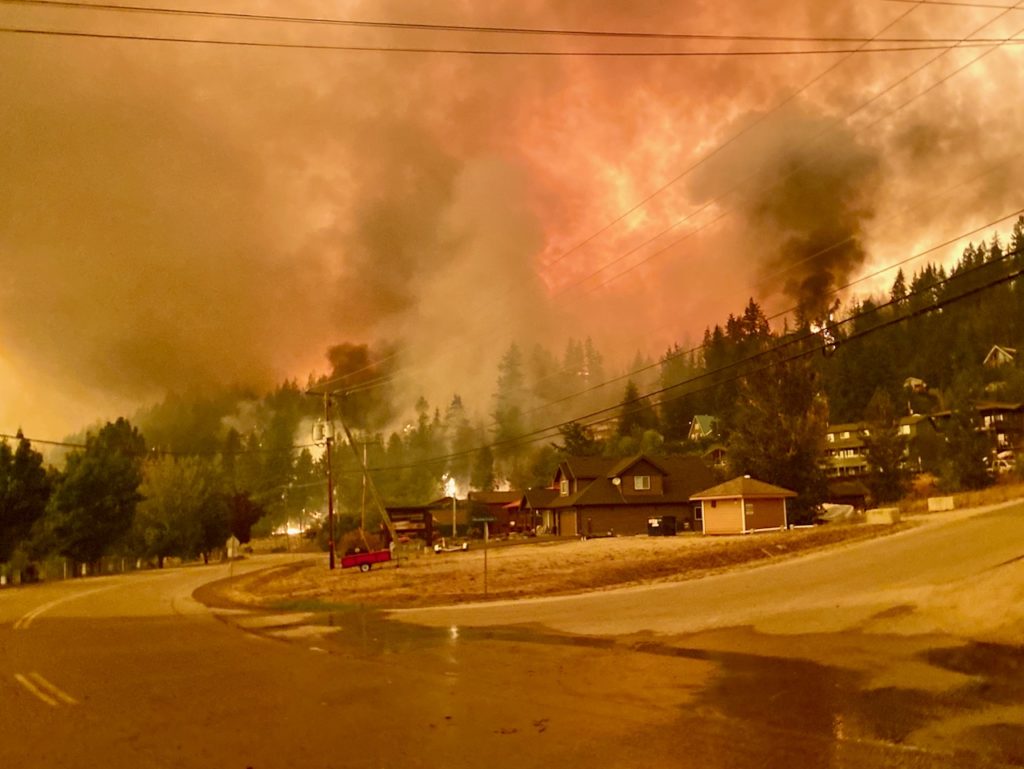
The report listed the local communities but neglected to include Lee Creek, just below where the massive aerial ignition was lit just prior to a windstorm and where ten homes burned. In the summary of themes, the report listed a key concern was the timing of the evacuation alert, rather than correctly identifying the timing of the order as the main issue. It also explained how there was no evacuation order in Sorrento, when indeed there was one.
Much of the report consists of computer-generated transcripts complete with spelling mistakes (e.g. shoe swap and Metal Creek). Many of the transcripts were of CSRD staff members speaking and yet these speakers were not identified. There was no estimate of the number of residents impacted by the fire, no timelines, and no examination of the important role that first responders performed in saving lives.
What the report does provide are the views and feelings of a community still traumatized by a massive wildfire that could have been prevented and a failed emergency management system that put residents in harms way instead of protecting them. It is obvious that despite countless meetings and intensive planning, staff sitting behind computers in offices far away from a disaster cannot provide the help that is needed, especially when they are dependent upon a provincial government organization that was more concerned with its own safety and reputation than the lives of the people it is mandated to protect.
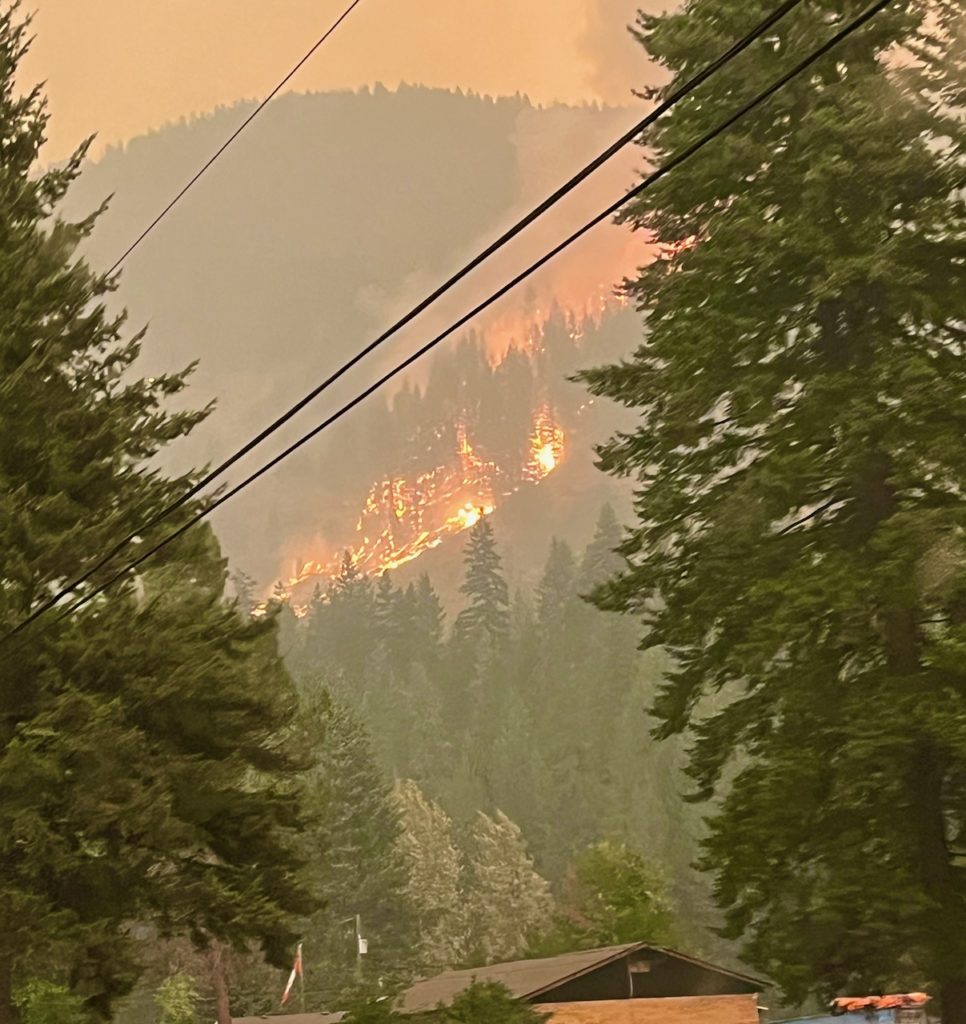
Words do matter and here are some key quotes about the delayed evacuation: Evacuation dangerously too late. We had no clue we were in the risk we were…did you know? What a gong show. We left by 1:30 and had to drive through flames, yet the order did not come for another hour. You lack credibility. Literal panic in our neighbourhood. A colossal management failure.
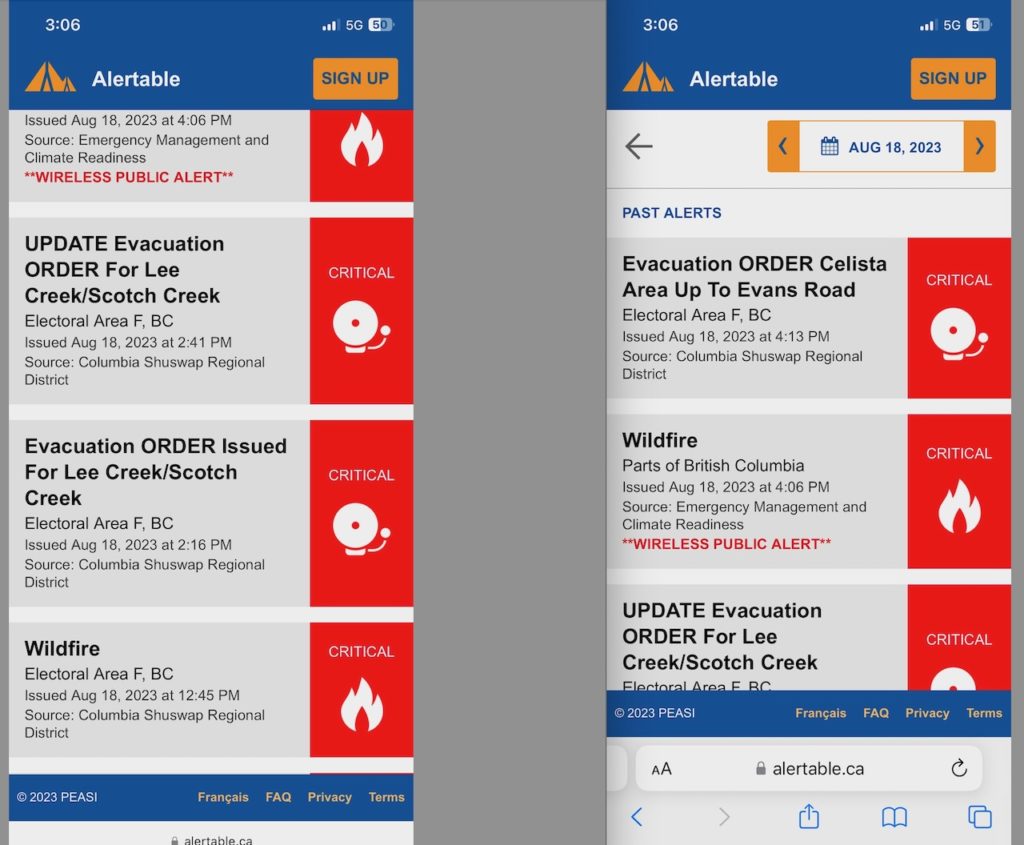
Many concerns were expressed about communication problems: We distrust the CSRD because of information gatekeeping, tone of messages, and lack of assistance or concern for lives and property. Terrible communication. BC Wildfire Service failed to provide honest information. The lesson we learned was we cannot trust the authorities; we need to trust our gut. Heard nothing from authorities and we had to run for our lives. We were left to burn. No words!
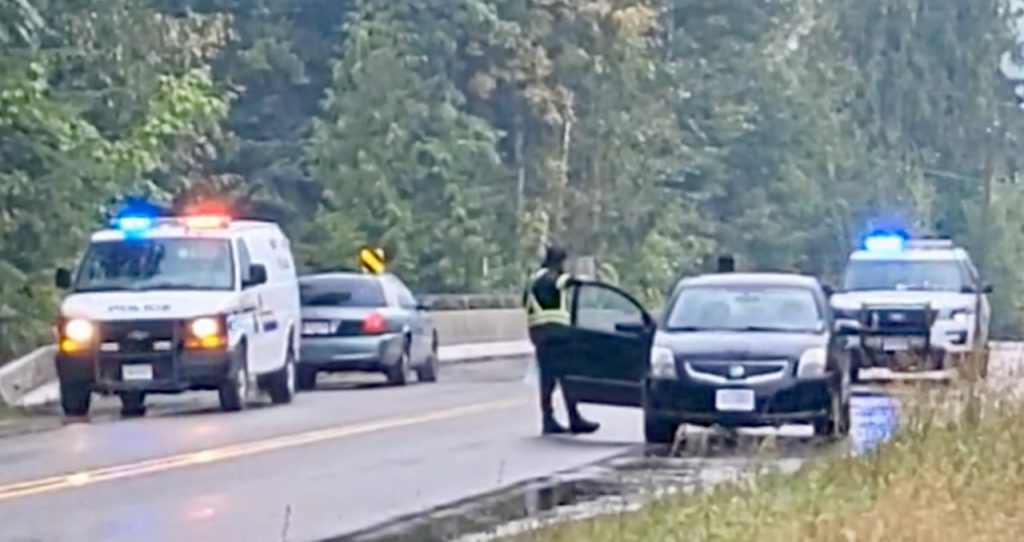
Much of the anger towards government is due to the counter-productive police state imposed upon the very residents who were doing their most to save homes and properties: Wildfire services fled, and we were left to our own devices to fight the fire. I only have a house today because of my neighbours who stayed behind and were on top of the creeping fires. Your policies and lack of support are a disgrace! Pressure to leave and threats made were unconscionable. Not advocating for the residents was complete disregard for the people who pay your salaries. How the CSRD treated these people was simply criminal.
Many of those that did evacuate also faced many problems, including property owners who are not BC residents and thus could not receive help: There was no option to receive support outside of Salmon Arm or Kamloops. After fighting the fire for 17 days straight, my husband was denied ESS except for 2 days. We were evacuated for a month and were refused compensation.
It is unlikely that North Shuswap residents will ever trust their regional district again after last year’s disaster, especially because of the mountains of red tape they are now faced with as they try to rebuild. The provincial government is aware of the critically important role that residents have during wildfires and have promised to provide, but have yet to deliver “pathways’ for locally trained people to play a role in wildfire response. While this report offers no understanding about why the evacuation order was delayed, hopefully the BC Ombudsperson’s Office will uncover the truth, given they are now investigating this issue based on my complaint.
POSTSCRIPT
At this point all we can do is speculate why the evacuation order was delayed. The CSRD only issues an order after the BC Wildfire Service recommends that it be done, so the delay was largely the fault of the BCWS, which knew as early as 6 pm on August 17th, that their backburn had escaped across Scotch Creek into Meadow Creek. They were observing the spread of the fire from helicopters and they had crews on the ground, including some who became trapped when the fire blew over them near the powerline. In fact they did issue an order for Meadow Creek at 11 pm on the 17th. It is a mystery what BCWS was doing on the morning of the 18th. They made no effort to stop the spread of the fire that morning as it was heading toward Celista and the community of Scotch Creek. No doubt they were overwhelmed as the Bush Creek fire was also moving quickly and they were forced to evacuate their fire camp as it roared across the field in Squilax.

The only viable theory is that they feared that if they called for an evacuation order soon after they had lit their backburn, then the resulting devastation could be too easily blamed on them. Instead they announced that the backburn was a success at 10 pm on the 17th, seven hours after it was lit and 3 hours after their crews were nearly killed by the escaping burn. They reiterated their claim it was a success on the morning of the 18th, which put some people at ease when they should have been evacuating. In fact, BCWS still insists the backburn was a success and saved “hundreds of homes,” when it is so obvious that the opposite is the truth.
Many people were phoning the CSRD to tell them that an evacuation order was needed, including the Celista volunteer fire department. Apparently, there may have been some communication problems between the CSRD and the BSWS. At noon, the workers at the transfer station in Scotch Creek phoned to say they could see the fire coming down the hill toward them and yet the CSRD told them to stay at work! Fortunately, they chose not to and left about 12:30, which was fortunate because the flames were on both sides of the highway by 1 pm.
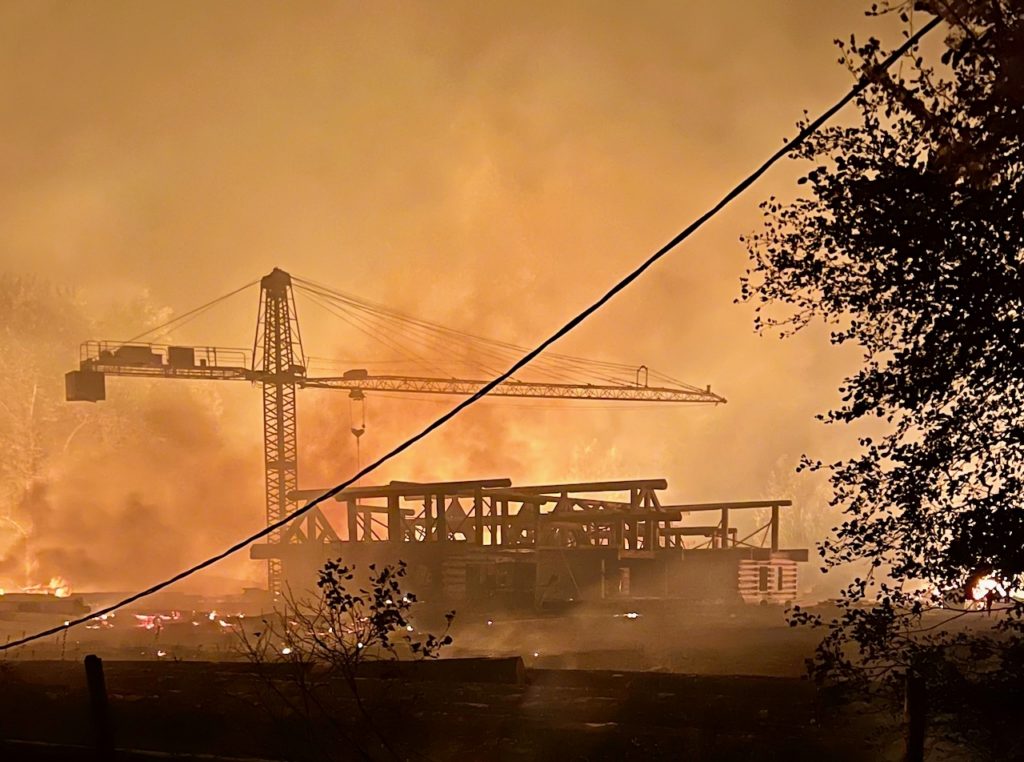
The contractors were well aware of the threat and began that morning moving their heavy equipment away from where the machines were parked at the base of the 670 logging road. As people began to evacuate, the flatbed trucks exiting were blocking the road as people were fleeing. Fortunately, RCMP officers arrived to direct traffic. It was total mayhem that afternoon, as people were forced to evacuate to Seymour Arm and some had to flee in boats through very choppy waves due to the high winds.
In the days that followed, the CSRD to their credit, did issue some passes to allow people to cross the police barricades. However, the police soon refused to abide by these passes, likely due to the direction given to them by the BCWS. Thus, trucks bringing in food, water tanks, pumps and hoses were turned away, due to the direction likely coming from Victoria through the wildfire service.
To complicate the situation, people living in Anglemont and St. Ives were basically trapped. Since they were not in an evacuation area, they could not get help if they did evacuate and they were running out of supplies. At one point, Anglemont resident Mark Taggert organized donations of supplies and a truck to bring the supplies to Anglemont. The trucker had a permit, but was denied access. So Mark managed to arrange for a barge to bring it all across the lake from Blind Bay. When the CSRD heard about this, they rushed down to get photos and to take credit for this operation. They then took over and set up a regular barge service during the next few weeks.
Throughout the transcripts in the report, many people commented how it would be good if the CSRD thanked the citizens of the North Shuswap who stayed behind to fight the spot fires and thus save countless homes and properties. Yet, even this request seems to be falling on deaf ears, as issuing any words of appreciation would also indicate that they had made mistakes during the weeks after the firestorm when they were insisting that everyone leave. As long as the CSRD refuses to change their narrative about what went down during the biggest disaster to ever hit the Shuswap, they will never regain the trust of the citizens of the Shuswap who had to suffer through the emergency.
